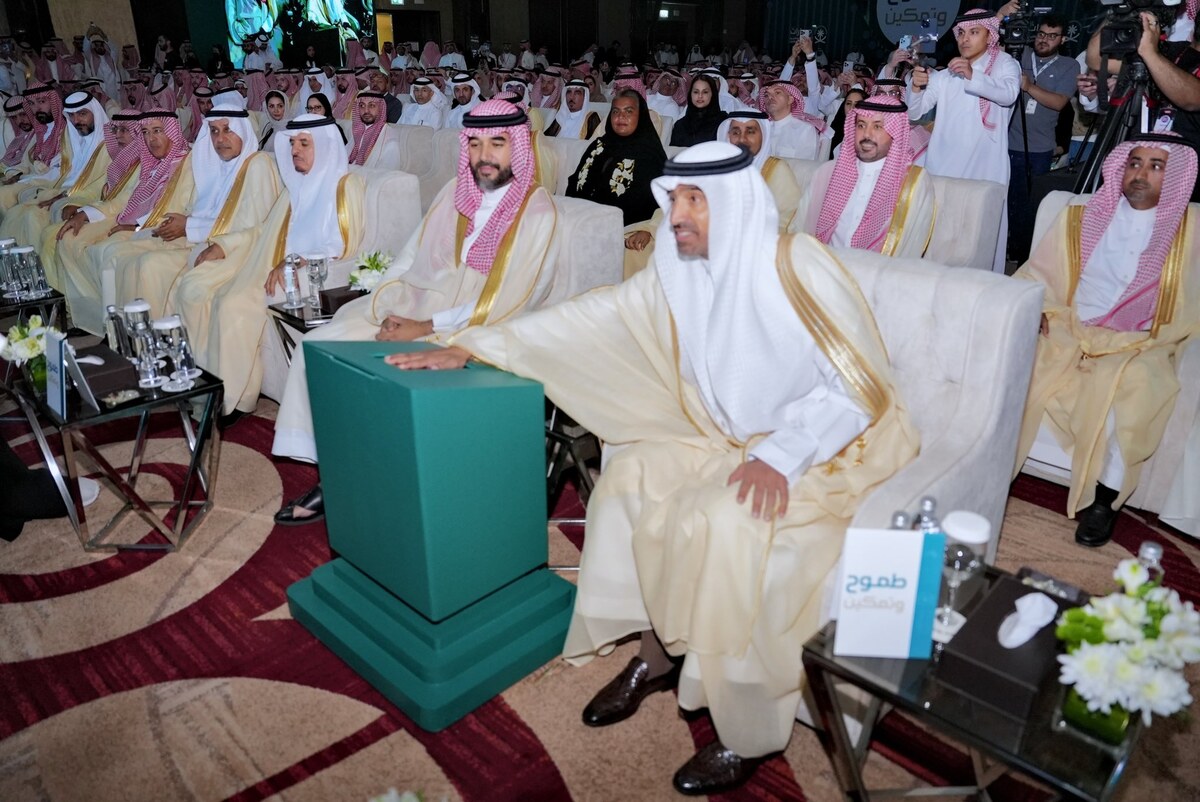RIYADH: Saudi Arabia has launched a unified employment portal offering job opportunities spanning across the government and public sectors.
The Jadarat platform was unveiled by the Kingdom’s Minister of Human Resources and Social Development, Ahmed Al-Rajhi.
The creation of the online portal falls in line with the country’s mission to reduce the rate of unemployment among citizens.
In June, a report released by the General Authority for Statistics said that the unemployment rate among Saudi nationals reached 7.6 percent in the first quarter of this year, a slight decrease of 0.2 points from the previous quarter and a yearly drop of 1.1 points.

Saudi Minister of Human Resources and Development, Ahmed Al-Rajhi speaks during the launching ceremony. X/@Ahmed_S_Alrajhi
“We launched today, the unified national platform for employment Jadarat; which comes as an extension of the combined efforts of government sectors to develop human capital, to match supply and demand in the labor market, and to be a front for employment in the public and private sectors, in line with the objectives of Vision 2030,” wrote Al-Rajhi on his X page, formerly Twitter.
Speaking at the launching ceremony, Al-Rajhi said that the number of Saudis working in the private sector has surpassed 2 million, signifying a growth in local participation in the Kingdom’s landscape.
The minister added that the Jadarat platform is expected to help the Human Resources Development Fund empower national cadres and enhance their participation in the labor market.
Al-Rajhi revealed that the fund has spent SR3.79 billion ($1.01 billion) in the first half of the year to support employment and training programs in the Kingdom.
Turki Al-Juwaini, the director of HRDF, said the platform offers more than 70,000 job opportunities in multiple sectors.
Al-Juwaini added that the platform will offer customized job-searching options, allowing users to filter opportunities across various regions, career paths, and skill sets.
In July, a report released by the National Labor Observatory said that 2.34 million Saudi nationals, comprising 1.38 million males and 957,798 females, are employed in the Kingdom’s private sector.

The Jadarat platform was unveiled by Saudi Minister of Human Resources and Development Ahmed Al-Rajhi. X/@Ahmed_S_Alrajhi
In October 2022, Saudi Arabia launched the pilot phase of Jadarat to connect job seekers with available employment opportunities in the public and private sectors.
Through the platform, the Kingdom integrated the data of jobseekers who registered on the Taqat and Jadarah portals. The former served as an employment support program, while the latter as an online recruiting job system.
The GASTAT report released in June said that the labor market indicators in the Kingdom demonstrated improvements, with the employment-to-population ratio for Saudi women increasing by 0.6 points to 30.7 percent in the first quarter of this year.
The authority further said that Saudi females’ labor force participation rate rose by 0.8 points to 35.8 percent in the first three months of 2024.
The employment-to-population ratio and labor force participation rate among Saudi male workers increased by 1.2 and 1.0 points, reaching 63.6 percent and 66.4 percent, respectively.
The report added that 95.9 percent of unemployed Saudi nationals are open to working in the Kingdom’s private sector.























